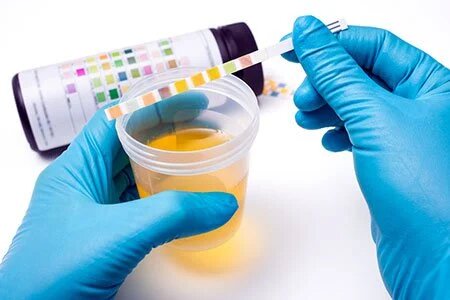Detoxification processes are commonly used to cleanse the body of various substances, especially in situations where drug tests are a concern. One method that has gained popularity in recent years is the use of synthetic urine as a means to pass drug tests undetected. Synthetic urine is a laboratory-produced product designed to mimic the composition and characteristics of natural urine. While it can be effective in certain situations, it is important to understand both its benefits and limitations in the detoxification process. The primary advantage of synthetic urine is its ability to closely resemble real urine in terms of appearance, chemical composition, and temperature. It typically contains water, urea, uric acid, creatinine, and other components found in natural urine. It is also formulated to have a similar pH level and specific gravity, which are important parameters measured during drug testing. When used correctly, synthetic urine can provide a convincing substitute that is difficult to differentiate from real urine.

However, it is crucial to note that synthetic urine is not foolproof, and its success in passing drug tests depends on several factors. First and foremost, the quality of the synthetic urine plays a significant role. Low-quality products may not meet the necessary standards, leading to immediate detection by advanced testing methods employed by laboratories. It is vital to choose a reputable brand that produces a high-quality Fake pee solution. Another essential aspect to consider is the procedure for handling and submitting the synthetic urine. Drug testing procedures often involve strict protocols, including temperature checks to ensure the authenticity of the sample. Natural urine is typically within a specific temperature range, and if synthetic urine is not warmed to the appropriate temperature, it can raise suspicion. Using heating pads or synthetic urine belts can help maintain the desired temperature, but it requires careful attention and timing.
Furthermore, advancements in drug testing technology have made it more challenging to deceive drug tests using synthetic urine. Laboratories now use advanced techniques such as gas chromatography-mass spectrometry GC-MS and liquid chromatography-mass spectrometry LC-MS to detect the presence of synthetic urine or adulterants. It is important to note that using synthetic urine to deceive drug tests is not only unethical but also illegal in many jurisdictions. Attempting to defraud a drug test can lead to serious consequences, including loss of employment, legal repercussions, and damage to one’s reputation. It is always advisable to explore legal alternatives, such as abstaining from drug use and allowing the body’s natural detoxification process to occur over time. In conclusion, synthetic urine can be an option for individuals seeking to pass drug tests, but it is not without risks. While it can closely resemble natural urine, the quality of the product and proper handling procedures are crucial factors in its success. Additionally, advancements in drug testing technology pose a significant challenge to using synthetic urine undetected. It is essential to consider the ethical and legal implications of attempting to deceive drug tests and explore legal alternatives for detoxification processes.

